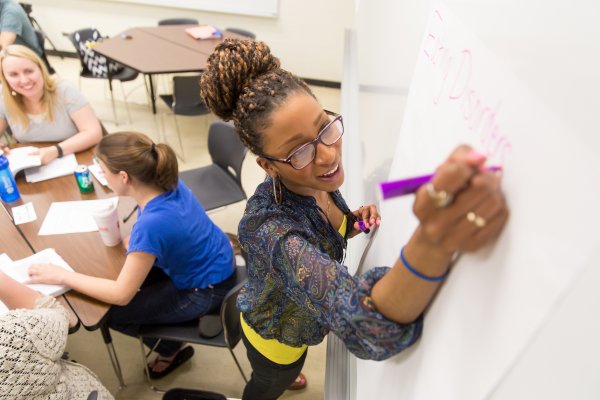Faculty/Student Mentoring
According to the Educational Advisory Board, mentoring is a high-impact practice fostering student satisfaction, sense of belonging, and overall success. What does good mentoring look like? How can we serve our students in the most effective way? In STEM fields, student mentoring is often falsely equated with research collaboration. We recognize that mentoring often occurs organically, but we would like to research best practices within different disciplines. What are the similarities and what are the field-specific features of best mentoring practices? What does research tell us about small changes we can make in our everyday interactions with students in order to create a successful mentoring environment?

Nancy Scannell Facilitator
Participating Members:
- Nancy Scannell
- Zsuzsanna Szaniszlo
- Faculty Learning Communities
- Applying Memory Science to the Classroom & Doing Research to See If It Actually Works
- Backwards Design Curriculum Development
- Beyond Textbooks: Using Online Resources in Your Classroom
- Blended Learning: Using Technology to Improve Student Learning
- Classroom to Career: Integrating Career-Ready Skills into the Curriculum
- Creating a Compassionate Campus
- Difficult Dialogues in the Classroom and Beyond
- Eco-Pedagogy
- Faculty Civility
- Faculty/Student Mentoring
- Helping At-Risk Students
- Inclusive Excellence in STEM
- Interdisciplinary Projects in Mathematics
- Mindset: Moving Students from a Fixed to a Growth Mindset
- New Directions in Artificial Intelligence
- Small Teaching Online
- Small Teaching
- Supporting Teaching of International Students
- Teaching Across Cultures
- Teaching by Discussion
- Teaching to Your Strengths
- The Flipped Classroom
- The Scholarship of Teaching and Learning
- Unconventional Grading Methods

